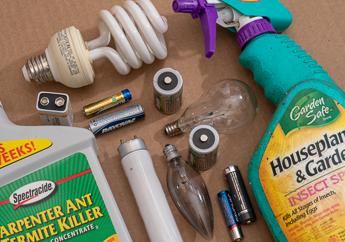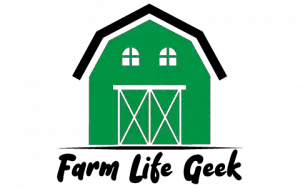Yes, halogen bulbs are considered hazardous waste. They contain high levels of mercury, which can be released into the environment if the bulbs are not disposed of properly.
Are Halogen Bulbs Hazardous Waste?
We all know that mercury is a hazardous waste material, so it’s no surprise that halogen bulbs are also considered hazardous waste. These bulbs contain small amounts of mercury, which can be released into the environment if the bulb is broken.
While the amount of mercury in a single bulb is very small, it can add up over time if these bulbs are not disposed of properly. When disposed of in a landfill, the mercury can leach into groundwater and contaminate it. This can be harmful to both humans and animals who consume the water.
The best way to dispose of halogen bulbs is to take them to a local recycling center that accepts them. This ensures that the mercury will be properly handled and won’t end up in our environment.
What happens to 'Recycled' Lightbulbs? – (you might be surprised)
What Can I Do With Old Halogen Lights?
These days, there are more options for lightbulbs than ever before. While halogen lights were once a popular choice, many people have since switched to LED bulbs for their energy efficiency and longer lifespan. So what can you do with your old halogen lights?
One option is to simply recycle them. Many local recycling centers will accept fluorescent and CFL bulbs, so you can bring your old halogen lights there to be properly disposed of.
Another option is to repurpose them for other uses around the home.
If you have some older lamps that use halogen bulbs, you can swap out the bulbs for LED ones and continue using the lamp. Or, you could use the halogen bulbs in outdoor fixtures or in places where you need a lot of light (like the garage).
Finally, you could also sell your old halogen lights online or at a garage sale.
There are still people out there who prefer these types of bulbs, so someone may be willing to pay a few dollars for your used ones.
Whatever you decide to do with your old halogen lights, make sure you dispose of them properly so they don’t end up in a landfill.
What Do You Do With a Burnt Out Halogen Bulb?
When a halogen bulb burns out, it’s important to dispose of it properly. Here are some tips on how to do so:
1. Halogen bulbs contain small amounts of mercury, so they should not be thrown in the trash.
Instead, look for a local recycling center that accepts them.
2. If you can’t find a recycling center, you can safely dispose of halogen bulbs by breaking them into small pieces and sealing them in a plastic bag before throwing them away. This will prevent the release of mercury into the environment.
3. Never try to dispose of a halogen bulb by burning it, as this can release toxic chemicals into the air.
Are Halogen Bulbs Toxic?
There is no definitive answer to this question as the toxicity of halogen bulbs depends on the specific type of bulb and its chemical composition. However, some types of halogen bulbs have been linked to health concerns such as skin irritation, headaches, and nausea. Additionally, if a halogen bulb breaks, it can release toxic chemicals into the air which can be harmful if inhaled.
Therefore, it is important to take precautions when handling and disposing of halogen bulbs.
Are Halogen Bulbs Going to Be Banned?
The production of halogen bulbs is set to be banned in the European Union from September 2018. The decision was made in order to phase out the use of inefficient lighting products and move towards more energy-efficient alternatives. Halogen bulbs are commonly used in household lamps and spotlights, so the ban will have a significant impact on the lighting market.
There has been some debate over whether or not halogen bulbs should be banned. Some argue that they are a more affordable option than LED bulbs, and so banning them would make it difficult for people to switch to more energy-efficient lighting. Others argue that halogen bulbs are actually less efficient than LED bulbs, and so banning them is a step in the right direction.
Whatever your opinion on the matter, it’s clear that halogen bulbs are on their way out. If you’re still using them in your home, now is the time to start looking for alternative lighting options.

Credit: dnr.mo.gov
Are Incandescent Light Bulbs Hazardous Waste
Are you concerned about the environmental impact of your light bulbs? Do you want to know if incandescent light bulbs are hazardous waste?
The answer may surprise you.
While incandescent light bulbs do contain small amounts of mercury, they are not considered hazardous waste by the Environmental Protection Agency (EPA). This is because the amount of mercury in each bulb is very low and poses no threat to human health or the environment.
However, it’s important to dispose of incandescent light bulbs properly.
Don’t throw them in the trash! Instead, take them to a recycling center that accepts fluorescent lights. This will ensure that the mercury is properly handled and won’t end up in a landfill where it could contaminate groundwater.
So there you have it! Incandescent light bulbs are not hazardous waste. However, it’s still important to recycle them properly.
Do your part for the environment and recycle your light bulbs today!
Are Fluorescent Light Bulbs Hazardous Waste
Fluorescent light bulbs contain mercury, a toxic heavy metal that can be dangerous to human health and the environment. When these bulbs are disposed of in landfills, the mercury can leach into soil and groundwater, where it can contaminate drinking water supplies. Fluorescent light bulbs should not be thrown away in the trash – they should be recycled at a specialized facility.
Are Led Light Bulbs Hazardous Waste
Are Led Light Bulbs Hazardous Waste?
Most people believe that LED light bulbs are a safer and more environmentally friendly alternative to traditional light bulbs. However, some experts have raised concerns that these bulbs may actually be more harmful to the environment than we realize.
It turns out that LED light bulbs contain a number of hazardous materials, including lead, mercury, and arsenic. While the levels of these toxins are low, they can still be released into the environment when the bulb is disposed of improperly.
Even though LED light bulbs use less energy than traditional light bulbs, it is important to dispose of them properly in order to protect our planet.
Here are some tips for disposing of your LED light bulbs safely:
1. Bring them to a local recycling center that accepts electronic waste.
2. Drop them off at a special collection event for hazardous waste (check with your local solid waste agency for details).
3. Place them in a sealed container and put them out with your regular trash on trash day (but check with your local solid waste agency first to see if this is allowed in your area).
Conclusion
Yes, halogen bulbs are classified as hazardous waste and must be disposed of properly. If a halogen bulb breaks, the mercury inside can be released into the environment and cause health problems for people and animals.
